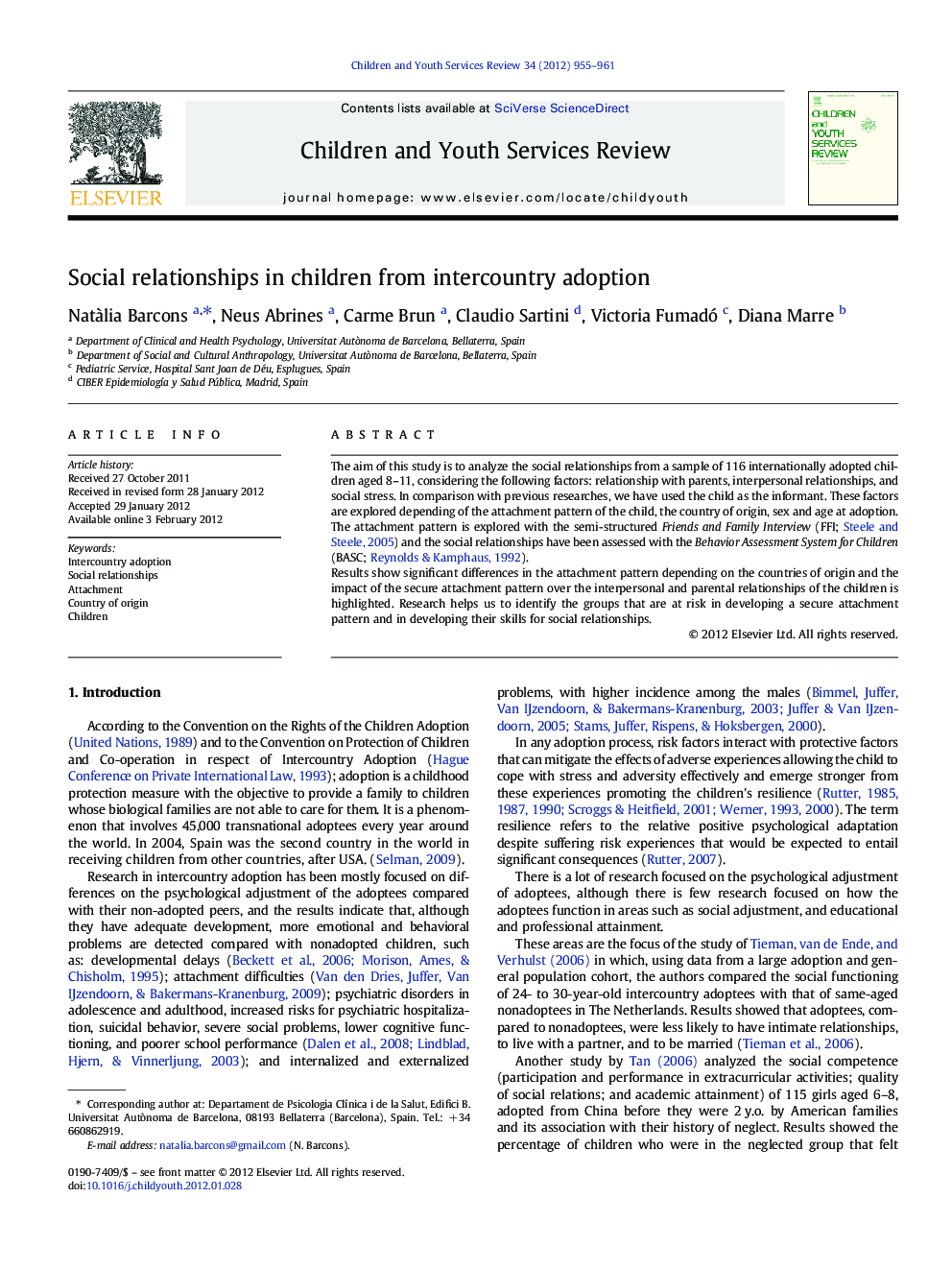| Article ID | Journal | Published Year | Pages | File Type |
|---|---|---|---|---|
| 346532 | Children and Youth Services Review | 2012 | 7 Pages |
The aim of this study is to analyze the social relationships from a sample of 116 internationally adopted children aged 8–11, considering the following factors: relationship with parents, interpersonal relationships, and social stress. In comparison with previous researches, we have used the child as the informant. These factors are explored depending of the attachment pattern of the child, the country of origin, sex and age at adoption. The attachment pattern is explored with the semi-structured Friends and Family Interview (FFI; Steele and Steele, 2005) and the social relationships have been assessed with the Behavior Assessment System for Children (BASC; Reynolds & Kamphaus, 1992).Results show significant differences in the attachment pattern depending on the countries of origin and the impact of the secure attachment pattern over the interpersonal and parental relationships of the children is highlighted. Research helps us to identify the groups that are at risk in developing a secure attachment pattern and in developing their skills for social relationships.
► Social relationships of 116 internationally adopted children aged 8–11 are examined. ► Adoptees from Eastern Europe struggle in developing a secure attachment pattern. ► A secure attachment pattern correlates on the children's social relationships. ► Adoptees from Eastern European countries struggle in developing social skills. ► Later age at adoption has an effect on interpersonal relationships and social stress.
